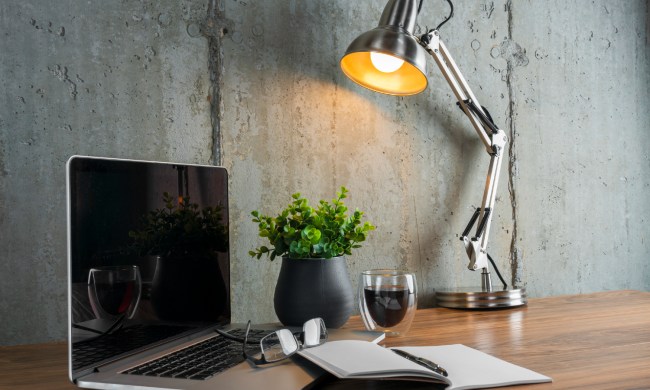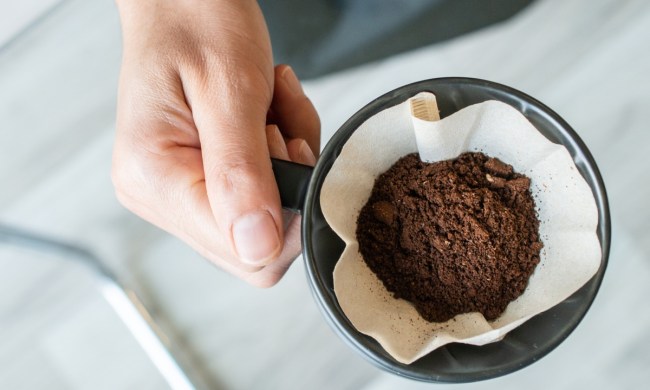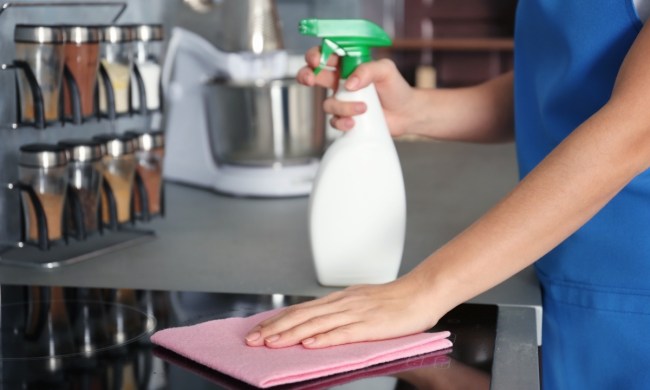There’s nothing that makes us feel more productive than a spotless house. Cleaning can be a chore (literally), but ticking items off to-do lists, the fresh scent of a recently cleaned room, and a space cleared of all clutter is the perfect environment to sit back, relax, and unwind.
Unfortunately, there’s a danger lurking in your cleaning closet. According to recent research, there’s a chemical in some household cleaners so bad it’s basically like breathing in the polluted air of a busy urban road (so much for that fresh, clean scent). It’s frequently added to cleaners and furniture polish, which means you probably have it at home.
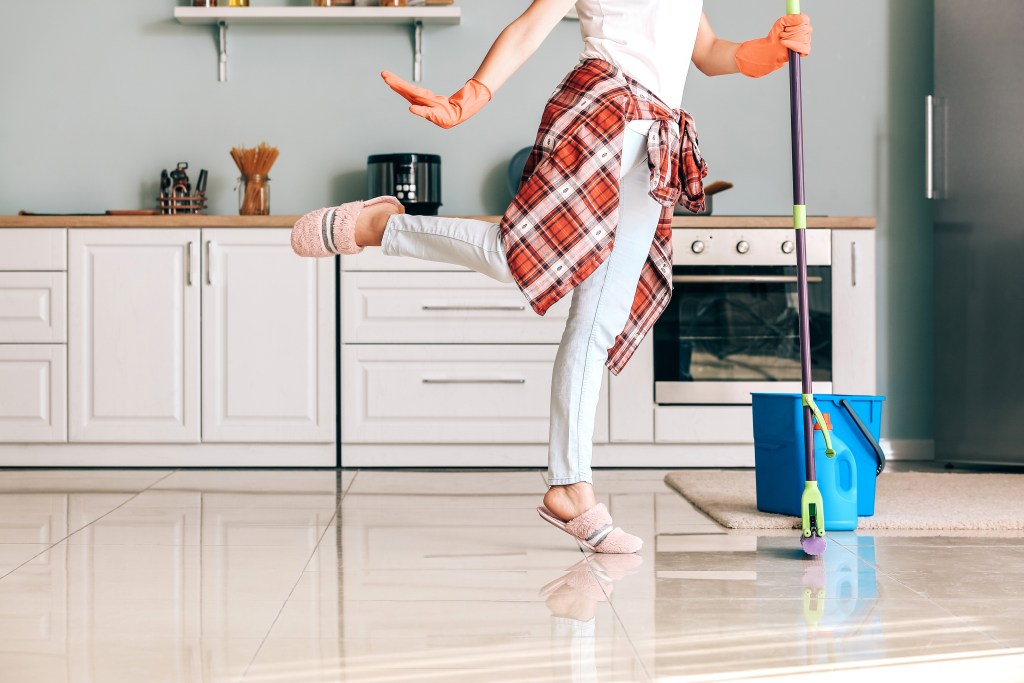
The bad stuff
They’re called monoterpenes and according to Science Advances, they’re seriously bad for your health.
The study found that cleaning a floor with a monoterpene-based product in a closed room created as much air pollution as you would breathe in sitting next to a busy road. In some cases, the level of indoor air pollution was so high that it was equivalent to sitting next to that road for six hours. The researchers used a popular commercial household cleaner containing monoterpenes like limonene, camphene, and pinene.
Monoterpenes are a type of volatile organic compound (VOCs), which evaporate into the air and get inhaled. Once they’re in the air, VOCs come in contact with an oxidant like ozone, which disperses them more thickly. A lot of household products emit VOCs — paints, paint strippers, cleaning supplies, pesticides, office equipment, glue, and permanent markers can all be culprits.
Monoterpenes are often found in cleaning products, perfumes, and products with essential oils — and the study noted they’re often found in products marketed with “natural” scents like citrus or pine. Limonene, for example, is a monoterpene used to create the citrus scent in many cleaning supplies.
Think about how many cleaning products you use that boast a pine or citrus scent — we’re betting it’s a lot, right?
What does all of this mean for your health? According to the EPA, the health effects of VOCs include eye, nose, and throat irritation, headaches, loss of coordination, nausea, and even damage to the liver, kidney, and the central nervous system. In short: Too much exposure to VOCs is not great for you.
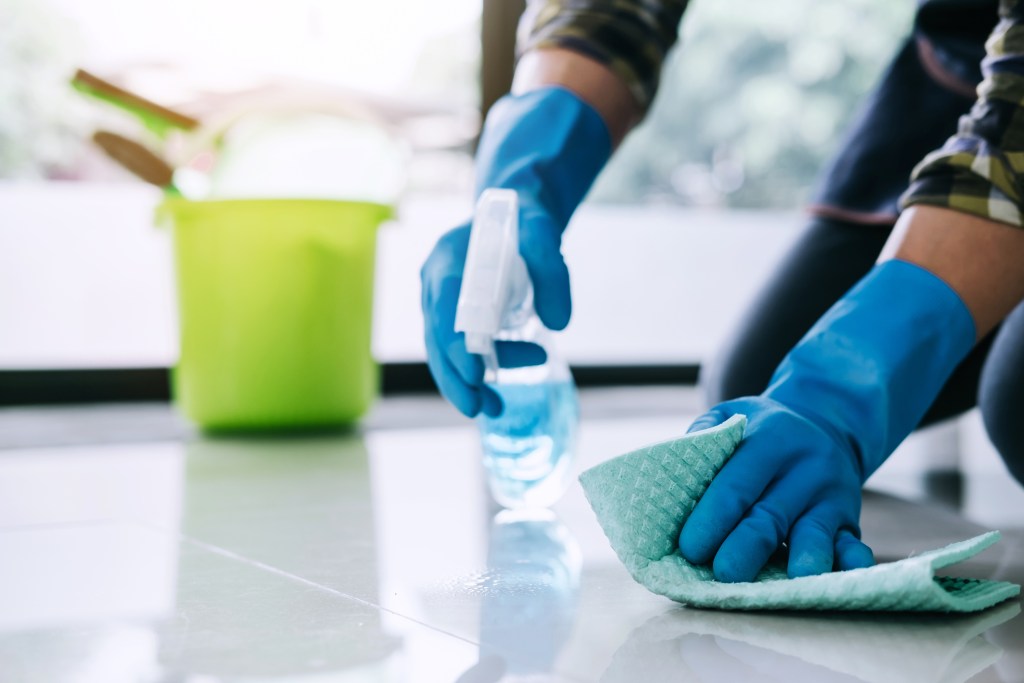
What can you do to stay safe?
The easiest way to avoid indoor air pollutants is to use a more natural cleaner. Why buy commercial cleaners with ingredients you can’t pronounce — potentially introducing toxic elements into your environment — when you can go with a tried-and-true cleaner like good old vinegar?
From your kitchen to your washing machine, vinegar is the secret ingredient to so many cleaning routines that you already have and, more importantly, that you already trust.
Not sure how to make your own do-it-yourself all-purpose cleaner? We’ve got you covered. By using this mixture of distilled white vinegar and water (seriously — how much simpler can it get?), you’ll have a cleaner that you can use not just on your floors, but countertops, appliances, showers, and more.
Note: Vinegar isn’t the best product to use on hardwood or stone surfaces. With these materials, Castile soap or plain water and a microfiber cleaning cloth are also good options, respectively.
Not ready to give up your commercial household cleaners? Make sure you use these tips when you clean:
- Wear a mask. We’re sure you’re pretty used to that by now.
- Look for monoterpene-free products. They’re pretty ubiquitous, but unscented cleaners are your best bet.
- Filtrate your air. If you don’t have or can’t afford a filtration system, look into a fan with one built in.
- Don’t clean in the afternoon. This is when ozone is typically at its highest.
We all want a clean house, but not at the expense of our air quality. Ditch the commercial cleaners with all sorts of chemicals and opt for a more natural approach.

